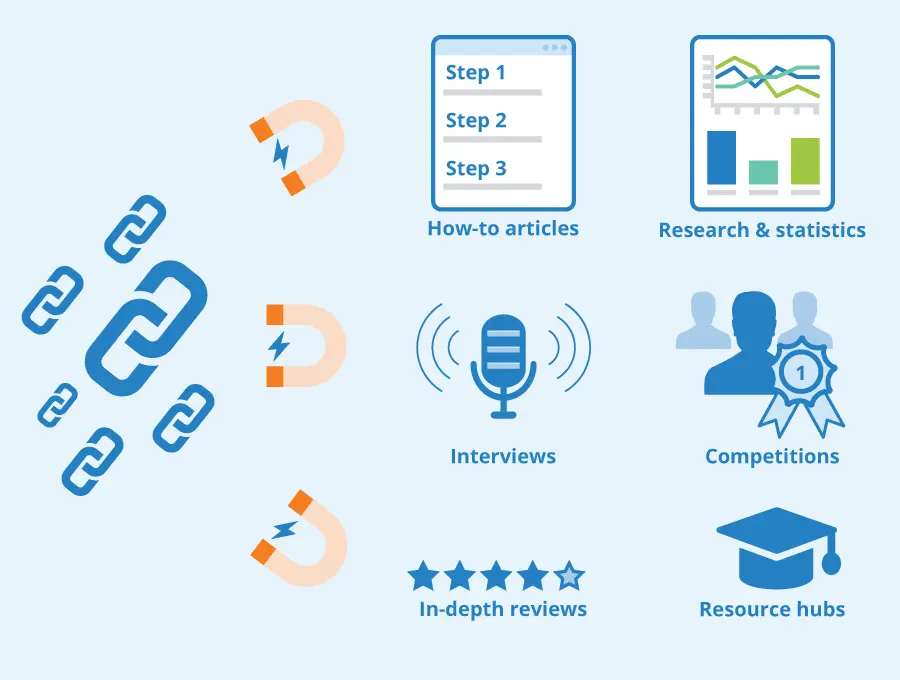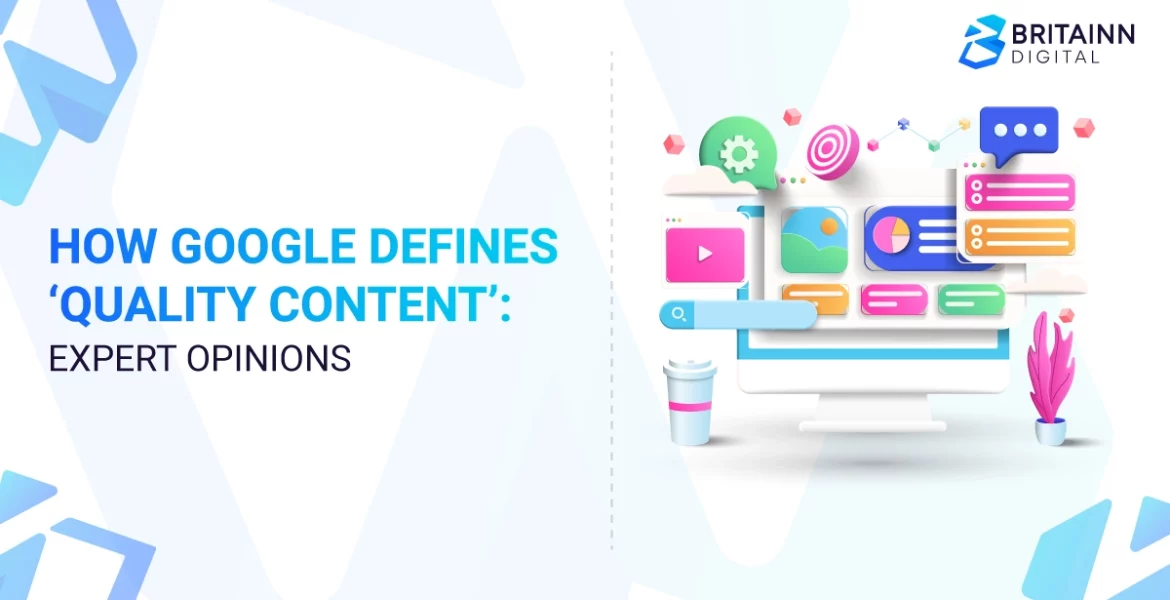Is the Material on Your Website of High-Quality Content to Be Considered Google’s Quality Content?
Whenever I say high-quality, I mean that it does not include any spelling mistakes, that it uses good grammar, that it thoroughly covers the topic, that it is interesting and well-written, and so on.
When she sent it to me to use for my blog, I couldn’t believe that a respected (and well-known) orthodontic clinic would have such obvious mistakes on its page. It is extremely risky to not have strong copywriting since sixty percent of customers would not purchase from a business that has badly written material.
When you think about how much good copywriting matters, it is downright dangerous. In addition to this, appealing writing drives 7.8 times more traffic to a website and generates brand remember, both of which contribute to increased engagement rates.
The truth is, providing your users with high-quality content isn’t the only reason why it’s crucial. Google is able to discern top-quality content and will reward websites that consistently produce it with higher search ranks.

High-Quality Contents
Why Producing a High-Quality Content Is Crucial to Your Company
Increased search rankings are directly proportional to increased organic website traffic when quality content is present.
Search engines are at the center of inbound marketing since they are the primary tool that potential consumers use to locate the goods and services they require. They are busy folks just like you are, too!
Do not anticipate that they will scroll very far down the pages of search results. The percentage of people who continue their search beyond the first page of results is often rather low for the majority of items and services. You are missing out on prospective consumers if the search results for the services you provide on your website do not feature prominently in high-ranking places. If you have higher search rankings, more people will visit your website. This will increase your possibilities to generate leads and provide you the chance to offer your goods or services to a larger audience. If You need Hight-Quality Content Help You Can Contact Britainn Digital.
A BETTER BRAND IMAGE Is the Result of Producing High-Quality Content
Web users who do searches feel that pages that rank higher on Google for particular search phrases must provide material that is authoritative and pertinent. The following statement was made public by Google itself: “Since the outset, we’ve focused on offering the greatest user experience possible. We take considerable effort to guarantee that the products we create, whether it be a new Internet browser or a new adjustment to the appearance of the site, will ultimately serve you, rather than our own internal aim or bottom line. This applies whether we’re creating the look of the browser or the homepage. Focus on the user, and everything else will fall into place.”
Google’s search algorithm undergoes regular adjustments with the aim of quality assurance; the company’s ultimate goal is to better meet the requirements of users who do online searches. It is reasonable to assume that searchers will have a more favorable impression of brands that are listed higher on search results.
So, Exactly What Constitutes High-Quality Content? According to Google, “You Are What You Eat.”
Google uses a metric known as E-A-T, which stands for expertise, authority, and trustworthiness, to determine the quality of information.
The Meaning of the Letters E-A-T is as Follows:
- Knowledge and experience are essential if you want to get a high ranking since people must consider you an authority in your profession. Your expertise must be proved and backed up in some way, not just by the material you produce but also by your credentials and the “biography” that you provide on all of your published works on the web. For websites that might have an effect on the reader’s health and well-being, such as those in the medical, legal, or financial fields, expertise is of the utmost importance (more on YMYL pages further down). On-page indications such as the bounce rate, the number of shares, and the amount of time spent on the page are also signals of knowledge.
- Authoritativeness – In order to demonstrate that you are an authority in your field, you will need to have authority indicators that link back to your content as well as your website. Backlinks from respectable sites, honors, connections, and reviews are all examples of this type of evidence. Additionally, the writing quality of your article ought to be high.
- Reliability – You have to demonstrate that users can rely on you in order for them to do so. This pertains to everything on your website that will reassure customers that their personal information is secure. In addition to authority, trustworthiness may be evaluated based on current reviews, footprints left around the internet, and even the safety of your website. For instance, 82 percent of users won’t even visit a website if they know it’s not safe. If you own an online store or your website features any kind of contact form, you really must ensure that it is protected for people to believe that you can be trusted.
That’s not the end of it either. In addition to that, it would do you well to adhere to the fundamental principles outlined in Google’s webmaster quality guidelines:
- Create pages primarily for the people who will be seeing them, not for search engines.
- Don’t fool your users.
- Stay away from any shortcuts that claim to increase your search engine results. A decent rule of thumb is to consider if you would feel comfortable describing what you have done to an employee of Google or to a website that is in direct competition with you. Asking the question, “Does this aid my users?” is another helpful test to conduct. Would I be doing this if there were no search engines to use?
- Consider the aspects that set your website apart, whether they be its usefulness or its appeal to visitors. Create a website that stands out from the competition in your industry.
What Exactly Is Considered Content of Low-Quality?
You might be wondering at this point, “hey, what exactly is material of low quality?” Low-quality material may be spammy or loaded with incorrect information, but at the end of the day, the fact that it does not satisfy the requirements of the user is what makes it undesirable. Consumers now have come to anticipate Google’s Quality Content from every online platform they connect with, including YouTube and Netflix. This expectation extends to everything else they do online.
The Following is Google’s Definition of the Content of Low Quality:
Poor Quality Content:
- A web page is regarded as being of low quality if it exhibits any one of the following characteristics:
- The primary content is of poor quality overall.
- The page returns an error message. It makes no difference if the rest of the website has a great rating or not if this section is poor.
- There is not a sufficient amount of primary content given that the objective of the page is to provide information.
- The author of the page or website does not have sufficient knowledge regarding the subject matter of the page, and/or the website does not inspire confidence or is not an authoritative source on the subject matter.
- The website has a reputation for being unreliable.
- The secondary content on the page is either unnecessary or unnecessary for the purpose of the page.
- The quantity of information available on the website is unsatisfactory.
- There is a dearth of useful sub-content on this page.
- The layout of the page might use some work. For instance, the website layout or the usage of space diverts attention away from the primary material, which makes it difficult to utilize.
- The website does not receive regular maintenance or updated content.
Worst Quality Web Pages:
The following qualities are indicative of pages of the lowest quality:
- Pages that are harmful, untrustworthy, or malevolent. Pages are meant to collect personal information for terrible purposes or to download malware.
- Pages have minimal to no utility.
- Misleading or pages. These are pages that are intended to mislead people or search engines.
- Deceptive design. This includes designs that top-load advertisements, designs that make advertisements seem like search boxes, and designs that make advertisements appear as a personally selected directory page.
- Deviant redirections Pages with several redirects that provide no benefit to the user, or that lead to a hazardous or malicious page.
- Your Money, Your Life website pages with insufficient or missing website information.
- Pages that are primarily intended to generate revenue and make minimal effort to assist users.
- Pages on defaced, abandoned, or hacked websites.
- Keyword stuffing.
- The primary material is automatically created, copied/scraped, or nonsense.
Consider the difference between using Urban Dictionary and Merriam-Webster to find excellent material. Although they both name themselves dictionaries, the results would be somewhat different. But, let’s be honest: just one of those sources would be considered reliable enough to utilize in a term paper. Google recognizes that users may benefit from information that is valuable, reliable, and instructive, and it rewards such content.
How to Create Valuable Content According To Google’s Quality Content
Writing quality content is not as difficult as it may appear. Certainly, it will need a bit more effort, but a little extra effort can yield significant gains in your rankings.
Let’s Talk About Ways to Boost Your Content Marketing:
Writing great content begins with an understanding of search intent. Understanding the reason for the reader’s visit to your website is crucial. What are your readers seeking? Whether they are seeking an answer, a service, an item, or instructions, if they cannot find it on your page, you have wasted a conversion chance. Content should be created with the user’s search intent in mind. We propose using tools such as Google Search Console to discover the searches users use to locate your website.
Other quality aspects such as functional connections, reading level, and load time might enhance the user experience. By keeping track of these when developing and optimizing content, you can provide the greatest possible user experience. Like many of life’s finest pleasures, outstanding material is designed to be shared. But the material that never receives a click cannot be shared.
It is expected that dynamic titles and meta descriptions will increase the click-through rate. Once a person clicks on your material, it is not enough for it to spread. Your material must have value, which may be derived from unique information, digestible content, and other factors. In addition, when other sites link to yours as a source, your site’s authority grows, which is another essential ranking element.




